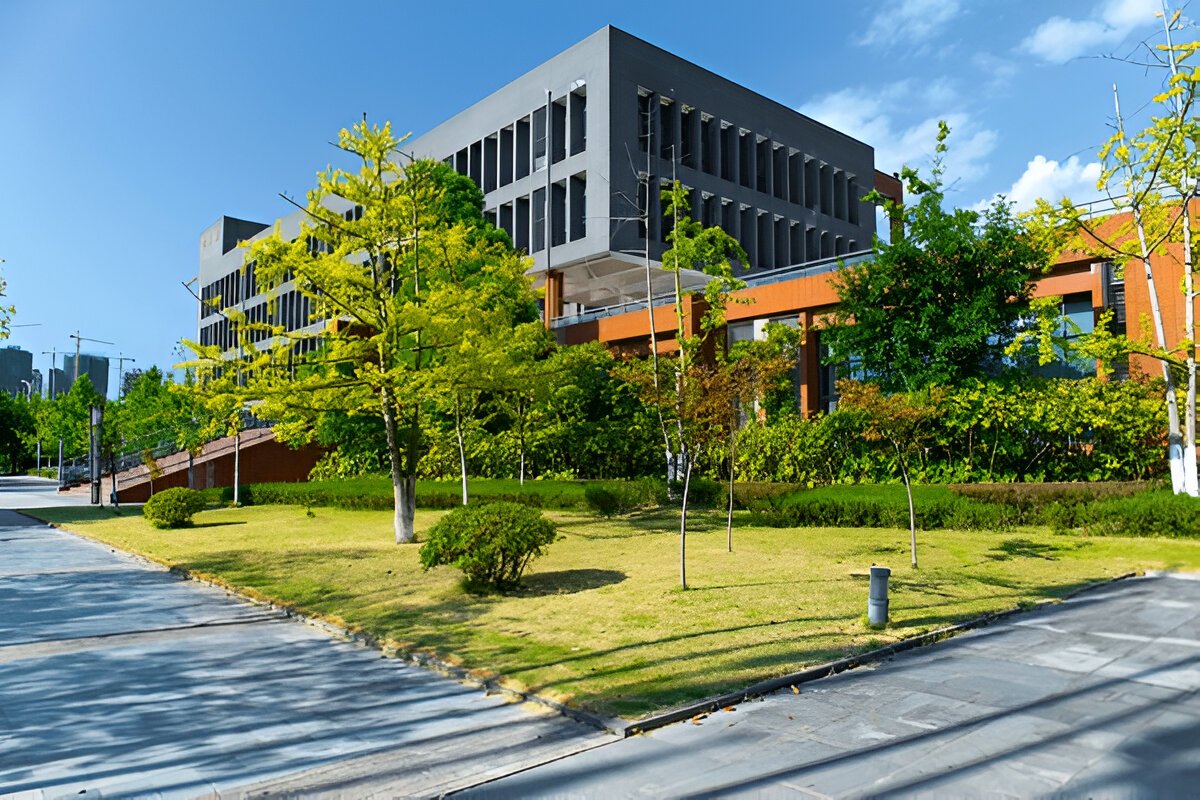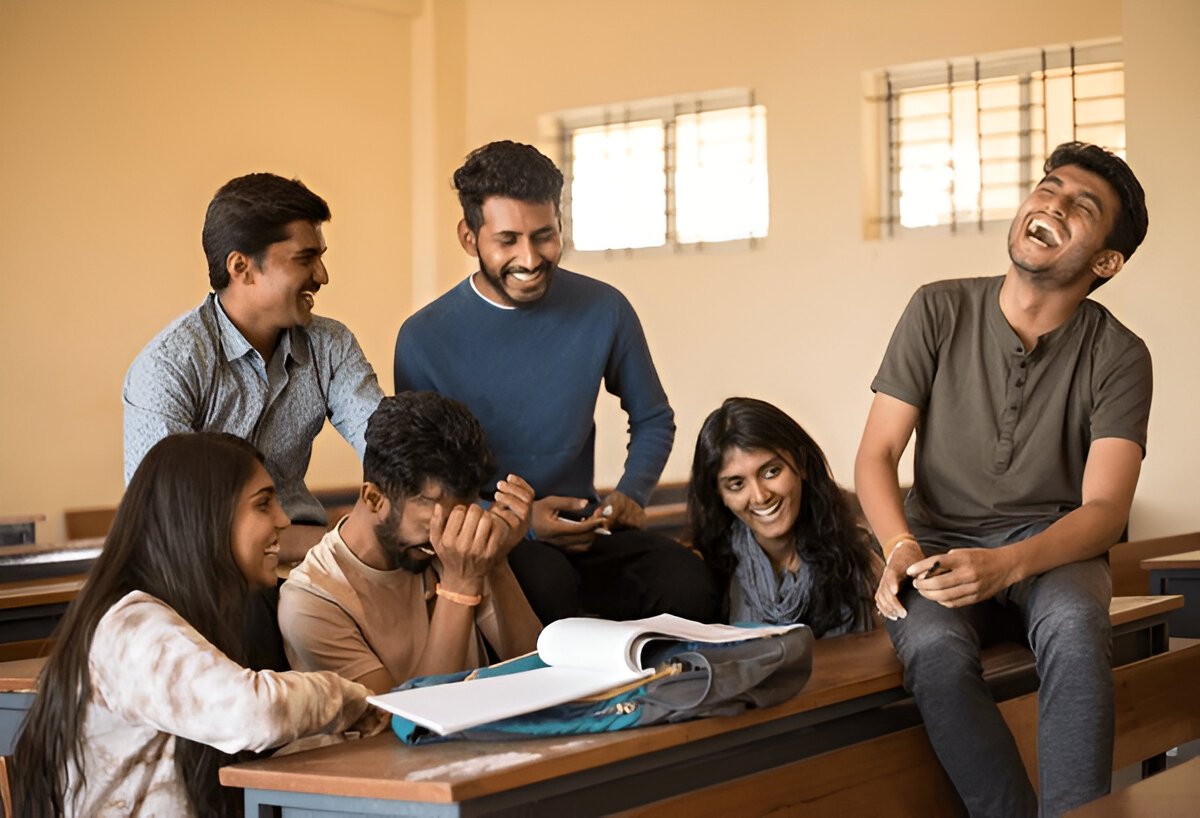
Envision standing before a class of eager students, your words shaping not just their knowledge but their entire worldview. This is the profound impact of a teaching career—one that begins with the Bangalore B.Ed admission 2025-26 process. Designed for those already committed to education, this in-depth guide walks you through every critical phase, from meeting stringent eligibility norms to selecting an NCTE-approved college that aligns perfectly with your pedagogical vision.
The entire Bangalore B.Ed admission 2025-26 is orchestrated by the Department of School Education and Literacy, Government of Karnataka, through a centralized online platform. With 282 participating institutions statewide and roughly 10,000 seats up for grabs, Bangalore commands a dominant share owing to its status as South India’s premier education corridor. According to the National Council for Teacher Education (NCTE), B.Ed enrollments in Karnataka surged by 15% in the 2024-25 cycle, mirroring national trends where over 2.5 lakh seats were filled across India, as reported by the Ministry of Education’s Annual Survey of Education Report (ASER) 2025.
Prospective teachers often search for precise timelines, document checklists, reservation breakdowns, and college comparisons—exactly what this resource delivers. By prioritizing middle- and bottom-funnel intent, we focus on actionable, data-backed insights rather than generic awareness.
Eligibility Criteria for Bangalore B.Ed Admission 2025-26

Basic qualifications for the Bangalore B.Ed admission 2025-26 are defined by NCTE guidelines and Karnataka’s state policies. A bachelor’s or master’s degree from a recognized university must be secured with at least 50% aggregate marks for general category candidates. A 5% relaxation is extended to SC/ST and OBC applicants, lowering the threshold to 45%.
Indian nationality is mandatory, along with a minimum age of 18 years at the time of application—no upper limit is enforced. Final-year students are permitted to apply provisionally, provided degree certificates are submitted during verification. This approach broadens participation, supporting national goals where over 2.5 lakh B.Ed seats were filled across India in 2024-25, according to Ministry of Education reports.
Subject-specific requirements are also considered. Science graduates need aligned coursework, whereas humanities candidates must showcase language proficiency. These criteria ensure readiness for the Bangalore B.Ed admission 2025-26 process.
Domicile and Language Proficiency Nuances
Karnataka domicile is not mandatory for open-merit seats but is essential for claiming state reservations. Non-domicile candidates compete under the All India Quota (15% of total seats). Additionally, proficiency in Kannada is evaluated during counselling for government school postings—candidates lacking it must undertake a bridge course post-admission.
Special Provisions for Diverse Backgrounds
Veterans, NCC ‘C’ certificate holders, and sportspersons receive horizontal reservations. Transgender applicants fall under the general category unless specified otherwise by state policy. Such inclusivity reflects NEP 2020’s equity mandate.
Step-by-Step Application Process

Applications for Bangalore B.Ed admission 2025-26 opened online on October 3, 2025, through schooleducation.kar.gov.in. Registration begins with email and mobile verification, followed by profile creation and form filling.
Essential uploads include:
- Scanned photograph (passport size, <50 KB)
- Signature (black ink, <30 KB)
- Graduation marksheets (all semesters)
- Category certificates (SC/ST/OBC/EWS/PwD)
- Domicile certificate (for Karnataka quota)
- Aadhaar or any government ID
The portal closed submissions on November 3, 2025, though brief extensions sometimes occur—monitor announcements closely. Last cycle processed over 50,000 applications, underscoring high competition.
Pro tips for smooth submission:
- Use a stable internet connection
- Double-check entered data
- Save a PDF of the completed form
- Note your application ID for tracking
- Mismatched Names: Ensure the name matches exactly across degree, Aadhaar, and category certificates.
- Incorrect Category Selection: OBC sub-categories (IIA, IIB, etc.) must align with the issued certificate.
- Low-Resolution Uploads: Scanned documents below 150 DPI are rejected automatically.
- Forgotten Password: Use the “Forgot Password” link with registered mobile/email.
Merit List and Cutoff Insights
Merit ranking relies solely on qualifying degree percentages, with the first list released on November 10, 2025. Candidates can raise objections until November 12, after which the final merit is locked.
Cutoff trends fluctuate annually based on applicant strength and seat matrix. Urban Bangalore colleges typically demand higher scores due to concentrated demand.
| Category | Expected Cutoff Range (%) | 2024 Reference (Top Institutions) | 2023 Reference |
|---|---|---|---|
| General | 60–70 | 65% (Christ-affiliated) | 63% |
| OBC | 55–65 | 60% (RV Teachers College) | 58% |
| SC/ST | 50–60 | 55% (Government seats) | 52% |
| EWS | 58–68 | 62% (Bangalore University) | 60% |
- Applicant Pool Size: 2025 saw a 12% increase in science graduates applying.
- Seat Matrix Changes: Government colleges added 500 seats under NEP expansion.
- Normalization: Bangalore University normalizes marks from different boards to ensure fairness.
Counselling Workflow: From Allotment to Reporting
Counselling begins post-merit with choice filling—submit up to 20 college preferences by November 13, 2025, for Round 1. Allotment results appear online the same day, factoring rank, choices, and reservations.
Document verification occurs at designated nodal centers in Bangalore, such as UBAS Complex, Government First Grade College (Jayanagar), or Maharani Cluster University. Originals required include:
- Degree certificates and marksheets
- Category and income certificates
- Domicile proof
- Transfer and conduct certificates
- Two passport-size photographs
Multiple rounds follow if seats remain vacant—last year required four phases. After verification, report to the allotted college within the stipulated window to confirm enrollment.
The sequence ensures:
- Transparent seat allocation
- Opportunity to upgrade in later rounds
- Minimal wait times between phases
Round-Wise Seat Allotment Trends (2024-25)
| Round | Seats Filled | General | OBC | SC/ST |
|---|---|---|---|---|
| 1 | 6,800 | 2,100 | 2,300 | 1,400 |
| 2 | 1,900 | 600 | 700 | 400 |
| 3 | 800 | 250 | 300 | 150 |
| 4 | 300 | 100 | 120 | 50 |
Candidates allotted a lower-preference college can opt for “Float” to participate in subsequent rounds without losing the current seat. “Freeze” locks the allotment permanently. This sliding system enabled 1,200 upgrades last year.
Reservation Framework: Promoting Inclusivity
Karnataka reserves 50% seats under state policy:
- SC: 15%
- ST: 3%
- OBC: 32% (IIA: 4%, IIB: 5%, IIIA: 4%, IIIB: 5%, I: 14%)
Additional horizontal quotas cover:
- PwD: 5% (benchmark disability)
- EWS: 10% (income < ₹8 lakh)
- Hyderabad-Karnataka (Article 371J): 8%
- Kannada Medium: 5%
- Rural Quota: 15% (studied Class 1–10 in rural areas)
Non-domicile applicants compete only in open merit, except under special provisions like NCC, NSS, or defense quotas. These measures increased SC/ST enrollment by 20% in 2024-25, per state education reports.
Horizontal vs. Vertical Reservation Explained
Vertical reservations (SC/ST/OBC) are applied first, followed by horizontal cuts (PwD, rural) across each vertical category. This ensures no group is disproportionately excluded.
Focus on NCTE Approved B.Ed Colleges in Bangalore
Every participating institution holds mandatory NCTE recognition, guaranteeing curriculum standards and infrastructure. Bangalore hosts over 50 such colleges, offering diverse pedagogical approaches from traditional to technology-integrated training.
These NCTE approved B.Ed colleges in Bangalore dedicate 80% of coursework to practical components—micro-teaching, internships, and action research. This hands-on emphasis aligns with NEP’s competency-based teacher education model.
Infrastructure Benchmarks Set by NCTE
- Library: Minimum 3,000 education-related titles
- Labs: Psychology, ICT, Science, Language
- Faculty: 1:10 teacher-student ratio; 50% with PhD
- Playground: Mandatory for physical education training
Non-compliant colleges are barred from centralized admission.
Leading Colleges: Strengths and Specializations
Choosing the right college shapes your teaching philosophy and career trajectory. The table below compares top performers based on NIRF 2025, NAAC accreditation, and program highlights.
| College Name | NIRF Rank (2025) | NAAC Grade | Intake Capacity | Key Strengths | Specializations Offered |
|---|---|---|---|---|---|
| Christ University (B.Ed) | 67 | A++ | 100 | Research labs, international exposure, MOUs | Inclusive Ed, STEM, Guidance & Counselling |
| Bangalore University (Dept. of Ed) | 65 | A+ | 150 | Strong faculty, diverse electives, govt. linkage | Language, Social Sciences, Physical Ed |
| RV Teachers College | — | A+ | 100 | Simulation centers, alumni mentorship, ICT focus | Math, Science, Early Childhood |
| Vijaya Teachers College | — | A | 80 | Community outreach, rural immersion, action research | Environmental Ed, Yoga, Value Ed |
| Amitha B.Ed Training Institute | Emerging | B++ | 50 | Flexible schedules, special ed focus, fieldwork | Special Education, Counselling, ICT |
| MES Teachers College | — | A | 100 | Heritage building, psychology lab, placement cell | Psychology, Sociology, Commerce |
| Goutham College of Education | — | B+ | 100 | Affordable, evening batches, industry tie-ups | Computer Science, Home Science |
- STEM Pedagogy: Integrates robotics and coding in classroom teaching
- Inclusive Education: Focus on children with disabilities (CWSN)
- Environmental Education: Mandatory under NEP’s sustainability goals
- Digital Literacy: Prepares teachers for smart classrooms
Program Structure and Curriculum Highlights
The B.Ed syllabus blends theory, practicum, and electives. Core papers cover:
- Childhood and Growing Up
- Contemporary India and Education
- Learning and Teaching
- Knowledge and Curriculum
- Assessment for Learning
- Gender, School and Society
Pedagogy of school subjects forms the backbone, with options in English, Mathematics, Physical Science, Biological Science, Social Science, Commerce, Computer Science, and Kannada. Emerging areas like ICT in Education, Yoga Education, and Health & Physical Education gain traction under NEP.
Semester-Wise Breakdown
| Semester | Theory Papers | Practicum | Internship |
|---|---|---|---|
| I | 4 | Micro-teaching (10 skills) | Observation (2 weeks) |
| II | 4 | Simulation, Lesson Planning | School Exposure (4 weeks) |
| III | 3 + Elective | Practice Teaching (40 lessons) | Phase I Internship (6 weeks) |
| IV | 2 + Project | Action Research, Case Study | Phase II Internship (10 weeks) |
Assessment combines internal evaluations (40%)—assignments, seminars, peer teaching—and university exams (60%).
Internship: The Heart of B.Ed Training
- Phase I: Observation, assisting class teachers, maintaining reflective journals
- Phase II: Full responsibility for 40 lessons across two subjects, parent-teacher meetings, co-curricular planning
- Evaluation: School mentor (30%), college supervisor (40%), portfolio (30%)
Placement and Career Pathways
Bangalore’s B.Ed graduates enter a robust job market. Government schools recruit via KARTET (Karnataka Teacher Eligibility Test), while private chains like Delhi Public School, Narayana, and Vibgyor conduct campus drives.
Typical roles include:
- Primary/Secondary Teacher (Govt. & Pvt.)
- Curriculum Developer
- Educational Counselor
- EdTech Content Specialist
- School Administrator
- NGO Trainer (Teach for India, Pratham)
Placement Statistics (2024 Batch)
| College | Placed (%) | Avg. Starting Role | Top Recruiters |
|---|---|---|---|
| Christ University | 92 | TGT/PGT | DPS, Ryan International, EdTech |
| RV Teachers College | 88 | Primary Teacher | Vibgyor, Narayana, Govt. Schools |
| Bangalore University | 85 | Subject Teacher | KVS, State Govt., Private Chains |
- Higher Education: Pursue M.Ed, PhD, or NET for lectureship
- EdTech: Content creation for Byju’s, Unacademy
- Policy & Research: Roles in NCERT, DIET, SCERT
- Entrepreneurship: Start coaching centers or teacher training startups
Preparing for KARTET and CTET
Clearing teacher eligibility tests is mandatory for government jobs. KARTET Pattern:
- Paper I (Class 1–5): Child Development, Languages, Math, EVS
- Paper II (Class 6–8): Child Development, Languages, Math/Science or Social Studies
Life After B.Ed: Long-Term Growth
Within five years, many move into:
- Head of Department: INR 8–12 LPA
- Vice Principal: INR 10–15 LPA
- DIET Lecturer: INR 7–10 LPA (govt.)
Conclusion
The Bangalore B.Ed admission 2025-26 offers a structured, equitable gateway to a meaningful teaching career. From merit-based selection and inclusive reservations to hands-on training in NCTE-approved colleges, every component is designed to produce competent, compassionate educators ready for 21st-century classrooms.
Stay proactive—bookmark schooleducation.kar.gov.in, join official WhatsApp/Telegram channels for instant alerts, and begin preparing your documents today. The next generation of learners awaits inspired guidance only you can provide.
Frequently Asked Questions (FAQs)
What is the last date to apply for Bangalore B.Ed admission 2025-26?
The application window closed on November 3, 2025. Late submissions are rarely accepted—check the official portal for any extensions announced by the department.
How many rounds of counselling are conducted?
Typically three to four rounds, depending on vacant seats after each allotment. Results are announced within 2–3 days of choice filling closure.
Can final-year graduates apply?
Yes, provisionally. Degree completion proof (provisional certificate or final marksheet) must be submitted during document verification; failure leads to cancellation.
Which documents are mandatory for counselling verification?
Original degree marksheets (all semesters), category certificates (SC/ST/OBC/EWS/PwD), domicile certificate (for Karnataka quota), transfer/conduct certificate, Aadhaar, and two recent photographs.
Are all Bangalore B.Ed colleges NCTE approved?
Only NCTE-recognized institutions participate in centralized admission. Verify approval status via the official college list on schooleducation.kar.gov.in before choice filling to avoid invalid allotments.
